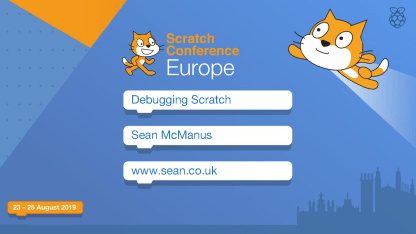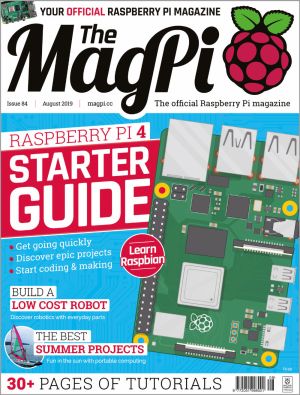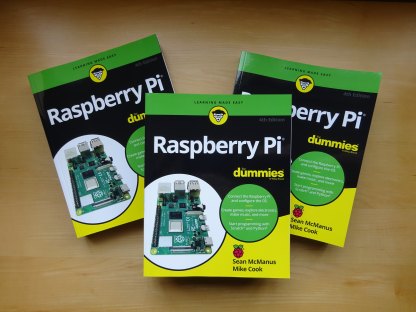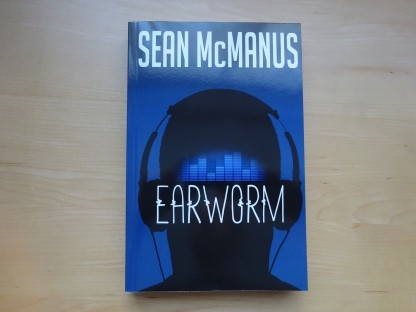
100 Top Tips: Microsoft Excel
Power up your Microsoft Excel skills with this powerful pocket-sized book of tips that will save you time and help you learn more from your spreadsheets.
27 August 2019
 I'm back at my desk following a fabulous weekend at Scratch Conference Europe, hosted by the Raspberry Pi Foundation at Churchill College, Cambridge. I delivered a presentation on debugging in Scratch, which covered tips and techniques to help educators to find errors in their students' projects more quickly.
I'm back at my desk following a fabulous weekend at Scratch Conference Europe, hosted by the Raspberry Pi Foundation at Churchill College, Cambridge. I delivered a presentation on debugging in Scratch, which covered tips and techniques to help educators to find errors in their students' projects more quickly.
The talk included my run down of the most common errors students made, based on my experience volunteering at a Code Club. Here they are, briefly:
I have now published my slides, together with my speaker notes, for this presentation, with more information on the above. The presentation also includes a debugging framework (reproduce, diagnose, fix, learn), and tips for testing a script and exposing what's going on inside it at different points in time. Download my Scratch debugging talk here (PDF). In the future, I plan to write an article about debugging Scratch, but I hope you find these speaker notes a useful format until then. (UPDATE! It's out now. You can download a PDF of my Scratch Debugging article in Hello World here. You can also read my round-up of Scratch Conference Europe here).
You can also find additional Scratch resources in my new Scratch resource centre here!
Get free chapters from my Scratch books here.
Permanent link for this post | Blog Home | Website Home | Email feedback
08 August 2019
 The latest issue of The MagPi includes my getting started tutorial for the Raspberry Pi. Among other things, you'll discover some recommended add-ons to expand your Raspberry Pi, recommended applications (and how to get them), and a tutorial on connecting to your Raspberry Pi remotely so you can access it without connecting a screen or keyboard. This is particularly helpful if you've built a project using the Raspberry Pi and don't want to have to connect peripherals to debug or update it.
The latest issue of The MagPi includes my getting started tutorial for the Raspberry Pi. Among other things, you'll discover some recommended add-ons to expand your Raspberry Pi, recommended applications (and how to get them), and a tutorial on connecting to your Raspberry Pi remotely so you can access it without connecting a screen or keyboard. This is particularly helpful if you've built a project using the Raspberry Pi and don't want to have to connect peripherals to debug or update it.
The feature article will be of particular interest to those who are new to the Raspberry Pi community, drawn in by the recently launched Raspberry Pi 4. This model has a more powerful CPU, up to 4GB of memory, dual screen support, and USB3 ports as well as support for USB2. Prices still start at $35 for 1GB of RAM, which even now I find astonishing.
The Raspberry Pi has always needed some additional bits and bobs to get it working, including a MicroSD card with the operating system on, a monitor cable, a power supply, and a keyboard and mouse (even if only to set it up). One of the early chapters in my co-authored book Raspberry Pi For Dummies includes a shopping list of the things you'll need to find. There is now an all-in-one Raspberry Pi 4 Desktop Kit you can buy that includes everything you need in one box (except the monitor), which not only saves the hassle of finding/buying things separately, but also ensures the components are validated to work together. The Raspberry Pi Foundation has created its own keyboard and mouse designs, which have a striking white and red colour scheme, and a Pi logo button on the keyboard.
The mag's been out for a couple of weeks already (while I've been working around a broken ankle), so if you want to grab a copy, don't delay. As always, the PDF is available to download for free, but you can support the work of the Raspberry Pi Foundation by buying the magazine at your newsagent, or subscribing. Subscribers have in the past received surprise free gifts from time to time, including the Raspberry Pi Zero, the Google AIY Kit, and The Raspberry Pi Annual hardback book.
For additional resources, please help yourself to free book chapters from Raspberry Pi For Dummies, Cool Scratch Projects in Easy Steps, and Scratch Programming in Easy Steps. Find all my free book chapters here. If you'd like to dig deeper into using and programming the Raspberry Pi, you can find links to buy these books (and more) here.
Permanent link for this post | Blog Home | Website Home | Email feedback
© Sean McManus. All rights reserved.
Visit www.sean.co.uk for free chapters from Sean's coding books (including Mission Python, Scratch Programming in Easy Steps and Coder Academy) and more!

Power up your Microsoft Excel skills with this powerful pocket-sized book of tips that will save you time and help you learn more from your spreadsheets.

This book, now fully updated for Scratch 3, will take you from the basics of the Scratch language into the depths of its more advanced features. A great way to start programming.

Code a space adventure game in this Python programming book published by No Starch Press.

Discover how to make 3D games, create mazes, build a drum machine, make a game with cartoon animals and more!

Set up your Raspberry Pi, then learn how to use the Linux command line, Scratch, Python, Sonic Pi, Minecraft and electronics projects with it.

In this entertaining techno-thriller, Sean McManus takes a slice through the music industry: from the boardroom to the stage; from the studio to the record fair.